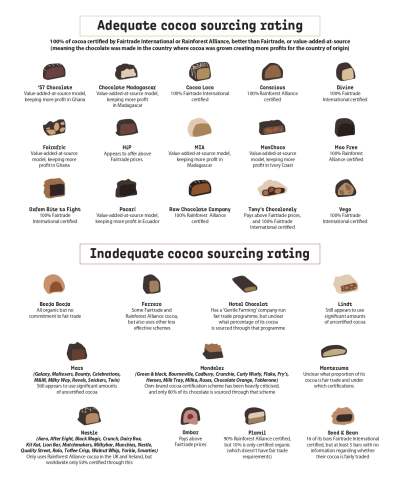Between roses, soft toys and other gifts, Valentine’s Day can be a time of major consumption – and lots of waste.
Ethical chocolate is a great alternative. But with child labour, deforestation and poverty wages all key issues in the industry, you’ll want to find the right brand.
In this guide, we help you find special chocolate gifts from brands that are doing something truly ethical.
(April 2025: We have removed Conscious Chocolate and Raw Chocolate Company from the guide as they have ceased trading.)




